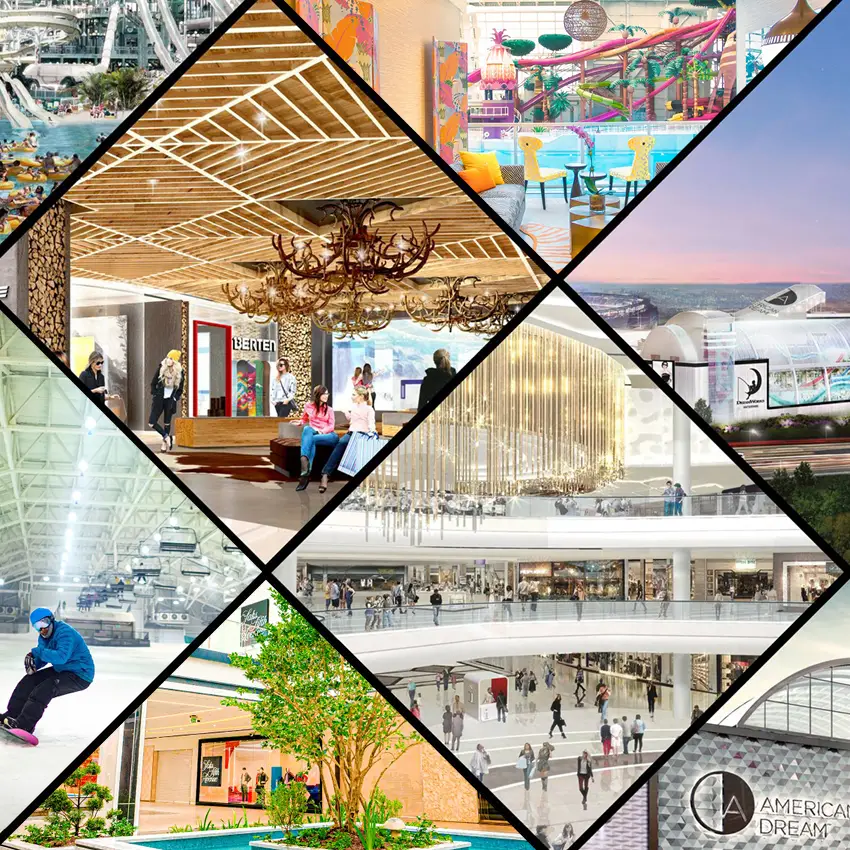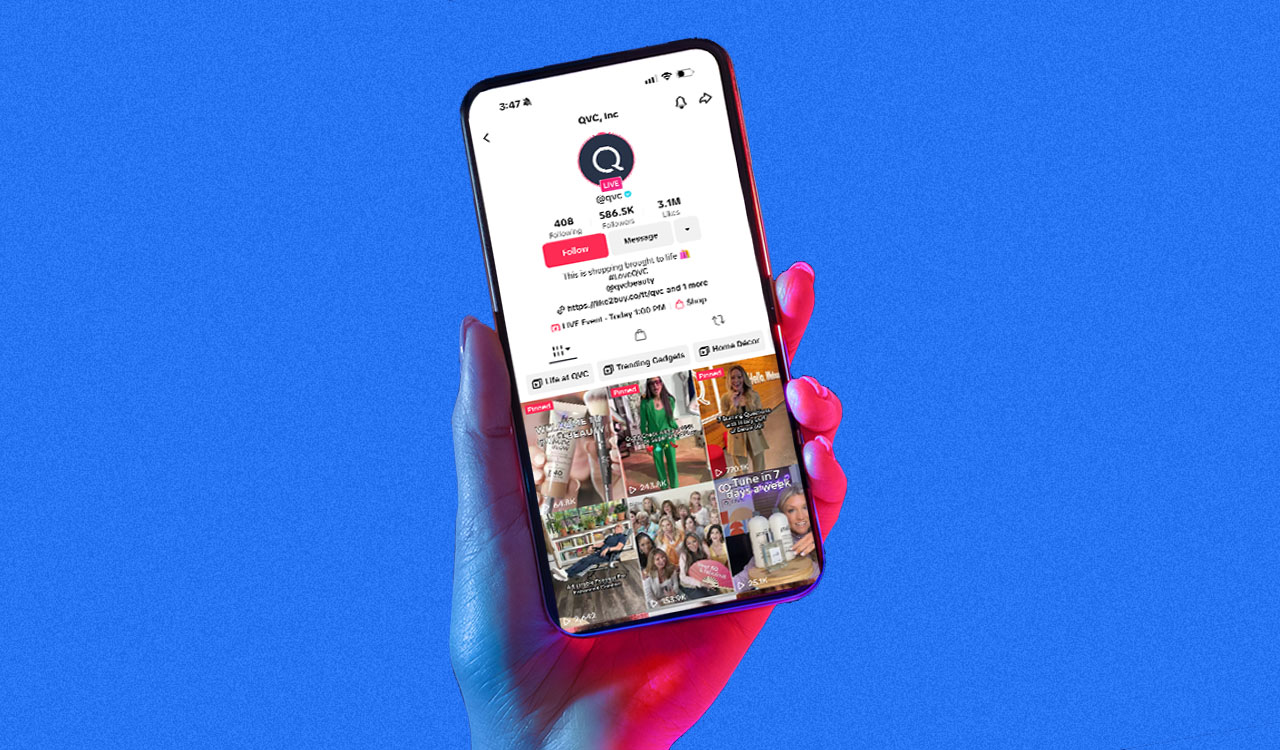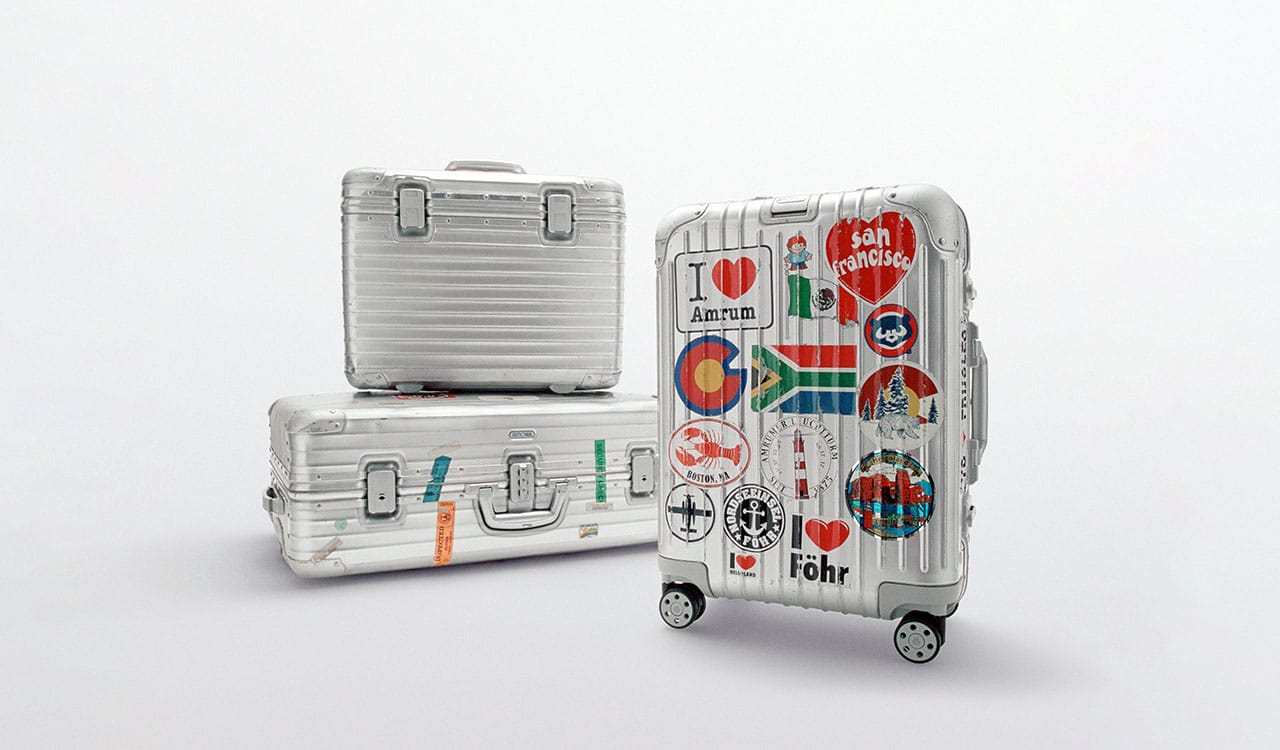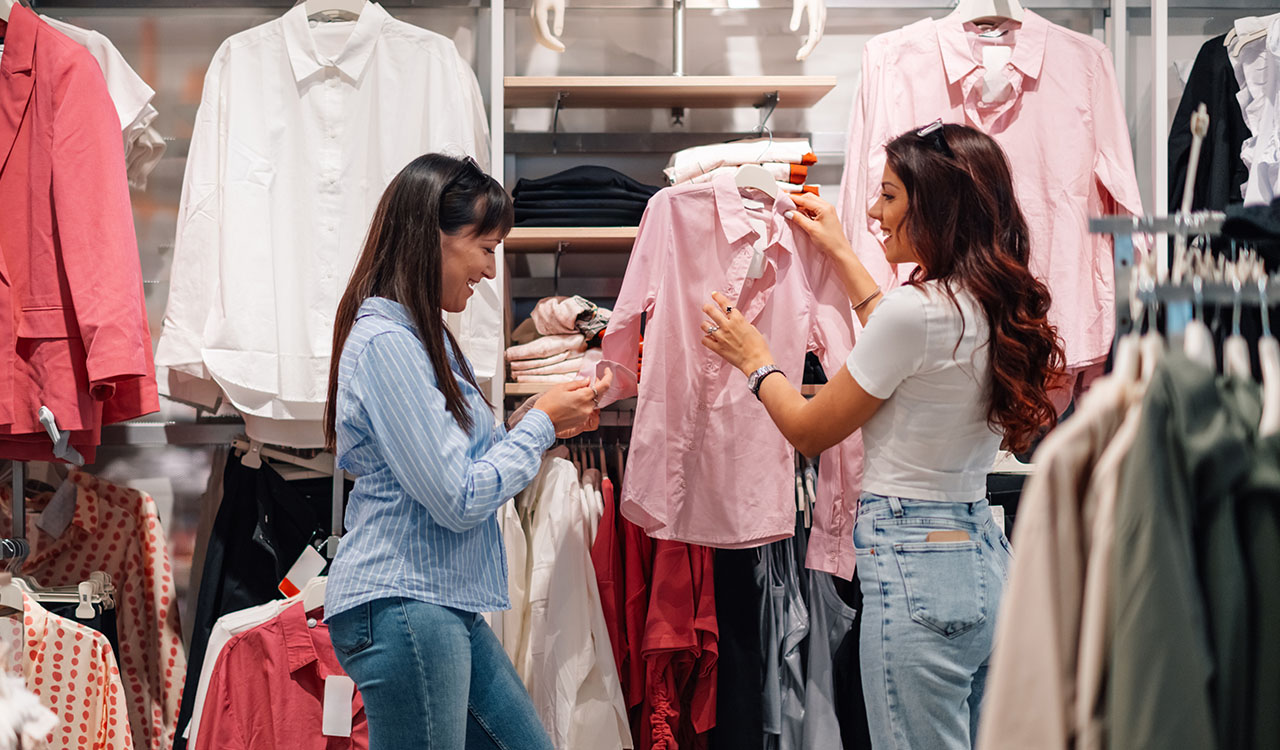They say if you build it, they will come. But they never said you had to finish building it first to get them to show up.
So, the American Dream monster mall/entertainment/whatever complex in the New Jersey Meadowlands just west of Manhattan remains a work in progress…and the progress is excruciatingly slow no matter how you measure it.
Close to two decades after they first broke ground for what was then called Xanadu and several developers later, the retail/amusement park/attraction behemoth is still far from finished with vast amounts of empty space and traffic that can politely be called modest on the best of days (although some reports are a little more encouraging – more on that later). A recent visit to American Dream – full disclosure, a slow October weekday afternoon – revealed all that is troubling about the place as well as the promise and potential one can see if everything – and I mean absolutely everything – were to fall into place someday.
A recent visit to American Dream – full disclosure, a slow October weekday afternoon – revealed all that is troubling about the place as well as the promise and potential one can see if everything – and I mean absolutely everything – were to fall into place someday.
Amuse Bust
At around three million square-feet, American Dream is the second largest mall in the country (Minnesota’s Mall of America is the biggest) and third largest in North America, trailing the West Edmonton Mall in Canada. Curiously – or perhaps not – all three are owned and operated by the same mall developer Triple Five, and much has been written about its controlling family, the Ghermezians. Their financial liability, not to mention, vulnerability, has also been widely reported. For today, let’s stick to looking at American Dream as a retail concept not a financial mess.
Walking around what seems to be everyone one of those three million square-feet of space (9,323 steps according to my Apple Watch), it’s fair to say that more than half of the space in the complex is empty. It’s probably more than that, but let’s cut them some slack. The feature attractions take up the biggest chunk of this space with the developers claiming that retail is less than half of the total footprint.
The Nickelodeon Universe amusement park and DreamWorks water park are the centerpieces, and while I didn’t bring my inner child (or requisite bathing suit) with me to try either one of them out firsthand, a peek through the glass and over the rail showed each of them sparsely populated. Yes, it was a weekday during the school season, but it’s hard to see how either one of these attractions is going to earn their keep even with the steep daily admission rates ($59 an adult head for the amusement park).
And the third leg of the amusement anchor? It’s called Big Snow, an indoor ski slope that on an earlier visit looked pretty impressive…not to mention daunting for most regular skiers and snowboarders. But on this particular day the gates were closed: it seemed there had been a fire the week before and according to a very friendly security guard it was closed for repair. One can ponder the irony of a place literally made of snow catching on fire, but it also added yet one more sad piece of the rotten luck this place has had…and continues to have for what seems pretty much its entire lifetime.
Shop…or Not
OK, we came to shop and indeed there were plenty of places to do that. Everything from Saks and Hermes to Best Buy and Victoria’s Secret (looking no less sexified than in the past despite all those reports about its brand repositioning), all the way to Primark and Zara. If this were a typical, human-sized mall that would have been enough.
But this is American Dream and for every store that was open for business there appeared to be three that weren’t with empty storefronts cleverly disguised by colorful and imaginative billboards and posters. Even in an age when malls are running disturbingly high vacancy rates, American Dream offered long stretches where there wasn’t a single open functioning retail establishment.
Take the highly touted luxury area called The Avenue. It finally opened this fall, nearly two years (yes, there was a pandemic) after the first section of the mall opened. While Triple Five says there are plenty of tenants on their way, on this day there were only a half dozen stores actually open for business. The anchor was Saks Fifth Avenue, which made the strategic mistake of closing its two closest Northern New Jersey locations quite some time ago in anticipation of this new space…only to see years go by with absolutely no presence in one of the most affluent and upscale marketplaces in the country.
The other stores were of the luxury variety – Hermes and that ilk – but the empty spaces were overwhelming in scope and underwhelmed the shopping experience. A Guest Services storefront – no doubt envisioned as a concierge to the rich and famous – seemed to be specializing in offering strollers and wheelchairs. Even the usual mall come-on of not-yet-open-but-signed locations seemed to be sparse, the most notable being Tiffany. With so few places to shop this was a luxury area that just about everybody could afford.
Let’s Eat
Every modern American mall worth its weight in gourmet impossible burgers has come to learn the value of food, be it fast and/or fabulous. And American Dream would seem to be with the program, or at least it will be eventually. At this point – and again this is more than a year into being open – the number of places to get something to eat is radically out of proportion to the scale of the place. We counted one – that’s the numeral one followed by nothing else – place to sit down and have a meal. There were a few fast-food places – Five Guys, of course and an oddly positioned shish kebab outpost that was the first U.S. location for a German chain – but tracking them down was no easy task. It was only later that we stumbled upon a food court complete with many of the usual mall suspects, but we were damned if anything or anybody told us this area existed. We suspect we weren’t the only ones misguided judging by the largely-mall-employee customer base grabbing lunch there that day.
And not that it matters even the slightest to this weary shopper, if you want an adult libation, that one – you remember, the numeral one followed by nothing – sit-down restaurant (at the extreme end of one of the many endless corridors) appeared to be the only option. Maybe there were others but we couldn’t find them.
Find and Seek
Lost in a Dream is how it felt trying to find anything. The search process often proved to be maddening. Yes, there were informational screens throughout the place but because many of them did not seem to function by touch, they were just dumb displays. As someone who considers himself pretty good at map reading, it took repeated attempts to follow the path one interactive screen provided that was designed to lead us to our destination. After ending up in more dead ends than in an industrial park, we finally asked one of the quite friendly mall personnel folks and eventually got to where we were going. Getting back was another story…but you get the point.
Overall, the signage was disappointing in an age when technology should make information easy for any modern establishment of more than 10 square-feet. From the directional signs along the access roads and the voluminous parking decks to all those endless corridors, shoppers couldn’t be blamed if they suddenly felt as if they had landed on the new season of The Amazing Race. At least you didn’t have to fight off any crowds.
So, where’s the Dream?
Yes, American Dream has had an absolutely dreadful history. Just about everything – developers going bankrupt, Chris Christie calling it America’s ugliest building, Covid and the resulting ongoing pandemic and even a fire in the snow – that could go wrong has done so, all in the midst of a radical transformation and reset of the entire retail industry. Part of you actually feels a little sorry for the Ghermezians, which given their offputting attitude is saying something.
But there’s something about American Dream that resists everything I’ve said. Placer.ai, the innovators who track foot traffic at retailers around the country, have been following the place since the day it opened and they are more optimistic than you might think.
“The American Dream Mall saw a strong summer season with visits consistently surpassing levels seen in the winter and spring. From the week beginning June 28th through the week beginning August 23rd, weekly visits consistently surpassed over 200,000 visitors for the location,” Ethan Chernofsky, vice president of marketing said in a September report.
But there was a but: “Early September has seen those visit numbers decline significantly, a likely combination of the mall’s forming seasonality and rising Covid cases.” Yet Placer continues to see hope. “However, the strength during a key retail season bodes well for the location’s draw and could indicate real reason for optimism ahead of the holiday season. This coming winter period could be especially important for the American Dream as the combination of colder weather and a key retail period could highlight the mall’s unique combination of retail and entertainment.” (Note with context: Original Triple Five forecasts were for 40 million annual visitors, which is a long way off from even these encouraging traffic upticks.)
There’s no question American Dream is indeed unique and both Mall of America and West Edmonton have proven the viability of giant indoor venues as solid businesses. The New York metropolitan area may be different than Minneapolis or the wilds of Western Canada but maybe it’s not that much different when it comes to people looking for places to go and things to do.
American Dream, it should be noted, is really quite good looking. Yes, it was once one ugly building, but Triple Five has cleaned it up nicely with the help of fabled architectural firm Gensler. All the graphics hiding those empty spaces (many done by millennial darling Jonathan Adler) are imaginative and certainly a cut above most anything else in retailing. Mall aisles are wide, courtyards and plazas split up the corridors, the parking is plentiful (though apparently not free beyond the first hour or two) and the designers have done a nice job breaking all that space up with assorted architectural motifs and materials. You know it’s huge, but you come away with your sanity, unlike mall shopping in Hong Kong or Dubai.
All of which is to say it’s still too early to pull the plug on American Dream. Triple Five is really good at this sort of thing, and we Americans love to shop, eat, be entertained and some of us even love to ski. It still could work.
But two years after it first opened its doors the clock is ticking for this place and we’re getting closer and closer to the point of knowing whether American Dream is just a mall too far.





